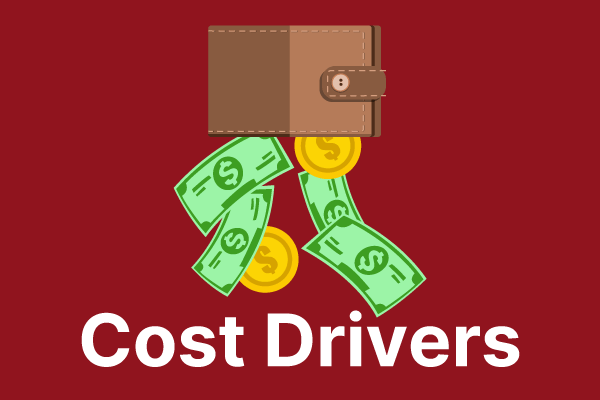 A Cost Driver bill imposing retroactive liability on companies for lawful activities dating back to 1990 was not considered as scheduled this week in the Assembly Judiciary Committee and therefore is unlikely to advance this year.
A Cost Driver bill imposing retroactive liability on companies for lawful activities dating back to 1990 was not considered as scheduled this week in the Assembly Judiciary Committee and therefore is unlikely to advance this year.
AB 1243 (Addis; D-Morro Bay) is opposed by the California Chamber of Commerce because it introduces significant regulatory uncertainty that threatens California’s economic stability and competitiveness.
By imposing retroactive financial liability on companies for lawful greenhouse gas emissions dating back to 1990, AB 1243 sends the message that even strict adherence to the state’s compliance programs is not enough to avoid retroactive liability down the road.
AB 1243 is a counterproductive policy posing serious economic, legal and practical problems. If enacted, it would increase costs for consumers and small businesses, complicate mergers and lending, and would be unconstitutional.
Friday, May 2 is the deadline for legislation to advance from policy to fiscal committees, making it unlikely that AB 1243 will move forward this year.
Climate Action Funding
In opposing AB 1243, the CalChamber and a coalition of business groups have reminded legislators that the bill’s policy goal of funding climate action already is being addressed by the state’s cap-and-trade program. To date, the program has raised nearly $30 billion for the state to invest while also driving significant statewide greenhouse gas emissions reductions.
Instead of creating new, retroactive liability to fund climate action, California should focus on extending California’s ambitious, yet effective, cap-and-trade program, the coalition declares.
Uncertainty for Planning
To establish a “Climate Superfund,” AB 1243 imposes financial liability retroactively on businesses from decades-old activities that complied with state and federal laws and regulations.
By punishing businesses for past activities conducted legally, AB 1243 would discourage investment in and hinder economic growth in California. If it becomes law, businesses must anticipate that their completely legal activities may someday become the basis for substantial liabilities imposed retroactively by the state.
In such a legal and regulatory environment, businesses cannot confidently make long-term investment plans. The uncertainty AB 1243 creates would extend far beyond the specific context of greenhouse gas emissions as businesses wonder what activity the state will impose retroactive liability on next.
Many of the same entities deemed “responsible parties” subject to AB 1243 already have paid the state billions of dollars for greenhouse gas emissions under the cap-and-trade program.
Increased Costs
AB 1243 does not cap the financial liability that can be imposed on responsible parties, meaning their costs of doing business could escalate dramatically.
These increased costs are likely to be passed down to consumers in the form of higher prices for gasoline, diesel, natural gas, electricity, and consumer goods.
The broad financial pressures created by AB 1243 would ripple across California’s economy, creating affordability challenges that extend beyond energy costs.
Small businesses, which often operate on tight profit margins, would face disproportionately severe consequences. Increased costs of energy and transportation directly raise expenses in day-to-day operations, such as fuel for delivery trucks, electricity for refrigeration, or heating costs for retail spaces.
In addition, small businesses may see indirect cost increases through higher prices for products and raw materials from suppliers who also face elevated energy costs, making it even harder to remain competitive or profitable. Consumers would face higher prices for groceries, transportation, housing, and services.
Other Harmful Impacts
AB 1243’s broad definition of “responsible parties” has the potential to affect thousands of stakeholders, including pension funds, university endowments, lending, and merger activity, placing significant burdens on California and interstate commerce.
For example, by using ownership interest as a proxy for responsibility, large institutional investors, pension funds and university endowment funds that have held a majority stake in any entity engaged in fossil fuel extraction or refining since 1990 may be drawn into the bill’s requirements.
Lenders may find themselves with significant financial liability simply for having foreclosed on energy assets. Entities that routinely serve as trustees in receivership may likewise find themselves acquiring “responsible party” status. AB 1243 also would introduce significant uncertainty into merger and acquisition activity in the United States.
Legal/Logistical Flaws
AB 1243 presents significant legal and logistical challenges that undermine its viability. The bill violates the structure of the U.S. Constitution and the comprehensive regulatory scheme of the Clean Air Act, which do not permit state law to impose liability for emissions beyond its own borders.
Logistical difficulties arise due to the complexity of accurately identifying and quantifying historical greenhouse gas emissions dating back to 1990. Many of the entities that operated during this period may no longer exist, may have merged, changed ownership, or restructured multiple times. Tracking down accurate and verifiable emissions data spanning more than three decades is an immense administrative challenge and could cost the state millions of dollars — especially considering historical inconsistencies in record-keeping and data reporting standards.
Staff Contact: Jon Kendrick

